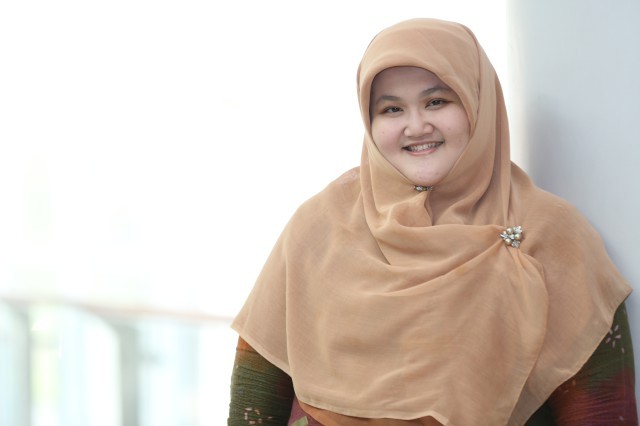
Dr. Adilla Anggraeni, B.Bus., MBA.
Dr. Adilla Anggraeni, B.Bus., MBA. earned her Doctor from University of Indonesia and Master Degree in Business Administration from University of Wales in 2010. Previously, she obtained her bachelor degree in marketing from Nanyang Business School, Nanyang Technological University in 2007.
She worked for American International Assurance, Singapore from 2007-2009. Besides being a full time lecturer in Marketing, Binus International Adilla is currently pursuing her doctoral degree in Marketing in University of Indonesia.
Case Document
Marketing
Year 2024
[CASE STUDY] WHISPERING LOUDLY: THE GOYARD’S ART OF LUXURY
This teaching note aims to provide guidelines for lecturers or facilitators to deliver Goyard case study. The first part of the case delivery will enable the students to familiarize themselves with the case and the company as described in the case study.
The second part of the teaching note will involve learning activities that the students will do in the class, including group discussions, presentations and debates. The facilitator can divide the participants into several groups and ask them to represent a stakeholder or a company.
The case discusses Goyard and the changes that have been made throughout the years and how the company was able to turn itself around with rejuvenation of the design and expansion of stores in other countries, as well as questions as to how Goyard can thrive in the modern world.
Marketing
Year 2023
[CASE STUDY] FRESHBOX UNVEILED: REVOLUTIONIZING THE FOOD CHAIN FROM THE FARM TO TABLE AND BEYOND
Freshbox is an e-grocery platform founded in 2018 by Matthew James. He envisioned bringing fresh produce from farmers to consumers’ tables directly, thus the concept ‘farm to table’ was introduced. Certainly, when the COVID-19 pandemic hit in late 2019, the e-grocery industry soared and Freshbox was able to grow significantly. They began to open offline stores starting with the first one in Mall of Indonesia. Despite the promising industry trend, the fact that the pandemic was coming to an end and customers started going back offline posed a threat to Freshbox. Other e-grocery platforms began to falter one by one, including the big players as well. The shifts in consumer behavior have forced Freshbox to go to survival mode. What strategies should Freshbox implement to survive in the constantly changing market?
Service Management
Year 2023
[CASE STUDY] FAST AND FURIOUS: HOW ANTERAJA DELIVERS ITS PROMISES
The case study discusses Anteraja, a courier company which operates throughout Indonesia. The case highlights the strategies that Anteraja has implemented so far and how they have performed in the Indonesian market. These teaching notes aim to provide a guideline for a lecturer or facilitator to deliver the Anteraja case study. The first part of the case delivery will enable the students to familiarize themselves with the case and the company as described in the case study.
The second part of the teaching note will provide options that a facilitator can take to conduct different class activities, such as a question-and-answer session, debate, gamification, or simulation.
People Management
Year 2022
[CASE STUDY] DREAMDELION: DREAMING WITH YOUR EYES OPEN
Dreamdelion was founded in 2012 as a non-profit organization. Initially, their concentration was solely on community development initiatives engaging underprivileged people. Dreamdelion has expanded to five Indonesian cities: Jakarta, Jogjakarta, Cianjur, Surabaya, and Ngawi. The projects were mostly based on assessment; once they believed that the project was complete, they would leave it. In terms of volunteers, Dreamdelion employs three distinct strategies. There are event volunteers, project volunteers, and long-term volunteers. Dreamdelion welcomed volunteers to be a part of its entrepreneurial and open organizational culture.
Dreamdelions had worked with government agencies, commercial corporations, and other organizations. Among its collaborators were the Ministries of Manpower and Transmigration, Communication, and Informatics, CIMB Niaga, Indonesia Power, and Bank Danamon. Eva, Dreamdalion's creator, understood that to thrive as a non-profit organization, Dreamdelion needed to do a lot of things. First, she had considered enlisting new collaborators so that they might continue to work on collaborative projects. She also intended to recruit additional volunteers, particularly those who could assist on a long-term basis. Eva also considered creating more particular programs geared to solving difficulties that may occur in civilizations because of the pandemic. However, there are several difficulties that she has been considering. How can we ensure that Dreamdelion receives enough volunteers and support from diverse stakeholders?
People Management
Year 2018
[CASE STUDY] TAUZIA HOTELS’ CORPORATE SOCIAL RESPONSIBILITY (CSR): A STAIRWAY TO HEAVEN
Corporate social responsibility (CSR) departments are often involved with civil society organizations (CSOs) through partnerships in order to develop projects in the format of CSR partnership establishment. Regardless of the type of projects, contemporary CSR paradigm labels the activity as creating ‘shared value’.
TAUZIA Equal Chance is a program established by TAUZIA group that is conducted through collaboration with Indonesian Street Children Organization (ISCO). This program was first aimed at provision of education for street children. The partnership has been running since 2013 and was based on a five-year contract. Under this partnership, TAUZIA Management has committed to do fundraising for a certain number of children under the ISCO foundation each year. Over the years, the number of students that they support keeps on increasing. To raise funds for this purpose, TAUZIA Management has employed several methods, including conducting a variety of fundraising events, involving and engaging its own employees as well as other stakeholders, etc.
On the other hand, Marc Steinmeyer realized that it is important to ensure that the program was successful and sustainable; knowing that a 5-year program requires a significant commitment on both parties and they may lose perspective along the way. This leads to the next question: how is TAUZIA’s ‘Equal Chance’ program developed in collaboration with Indonesian Street Children Organization (ISCO) to create and sustain the kind of values for both organizations? How can both organizations leverage their partnership? What will be the next move that TAUZIA can take to expand its CSR activities?
Page 1 of 2
